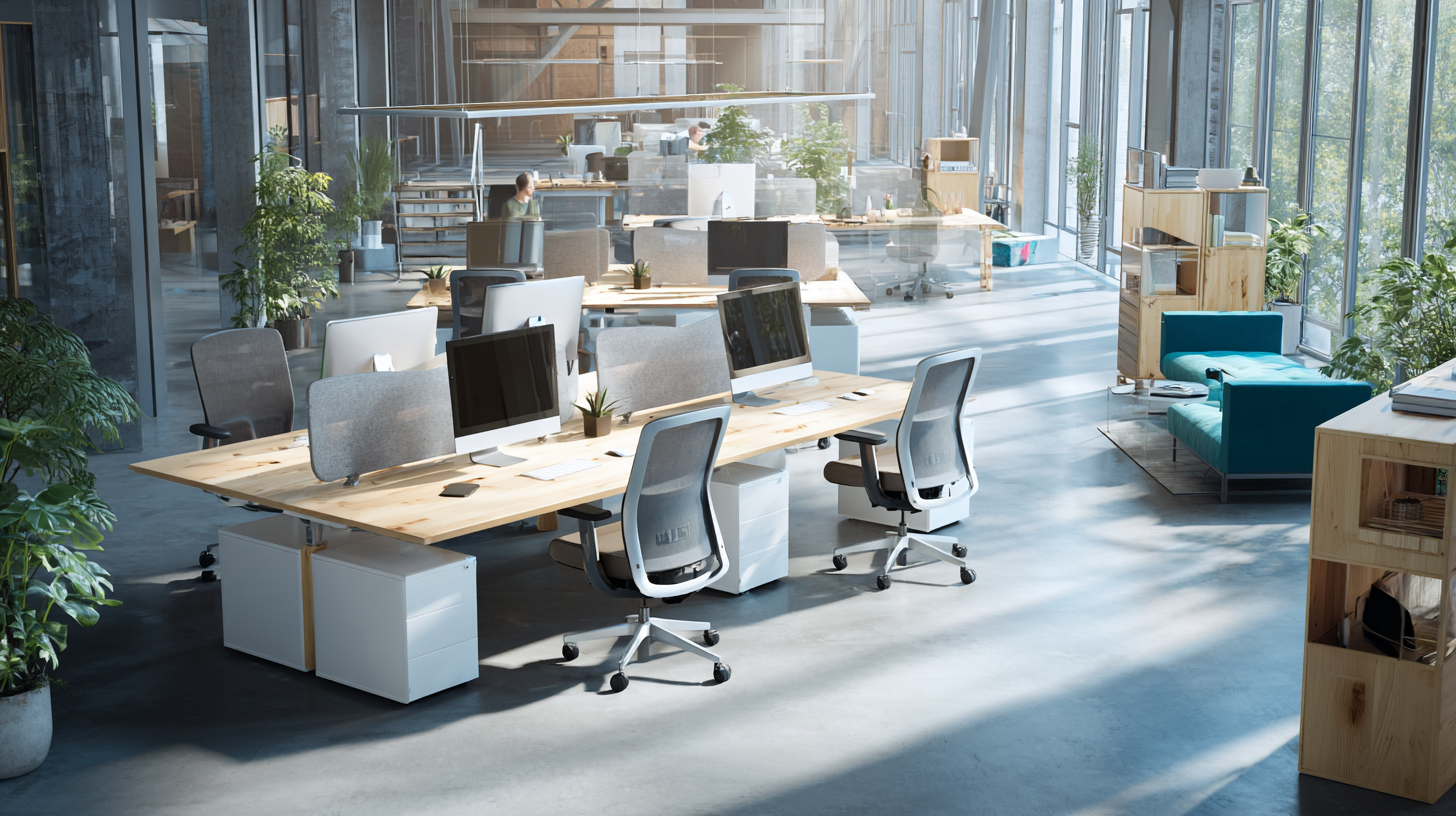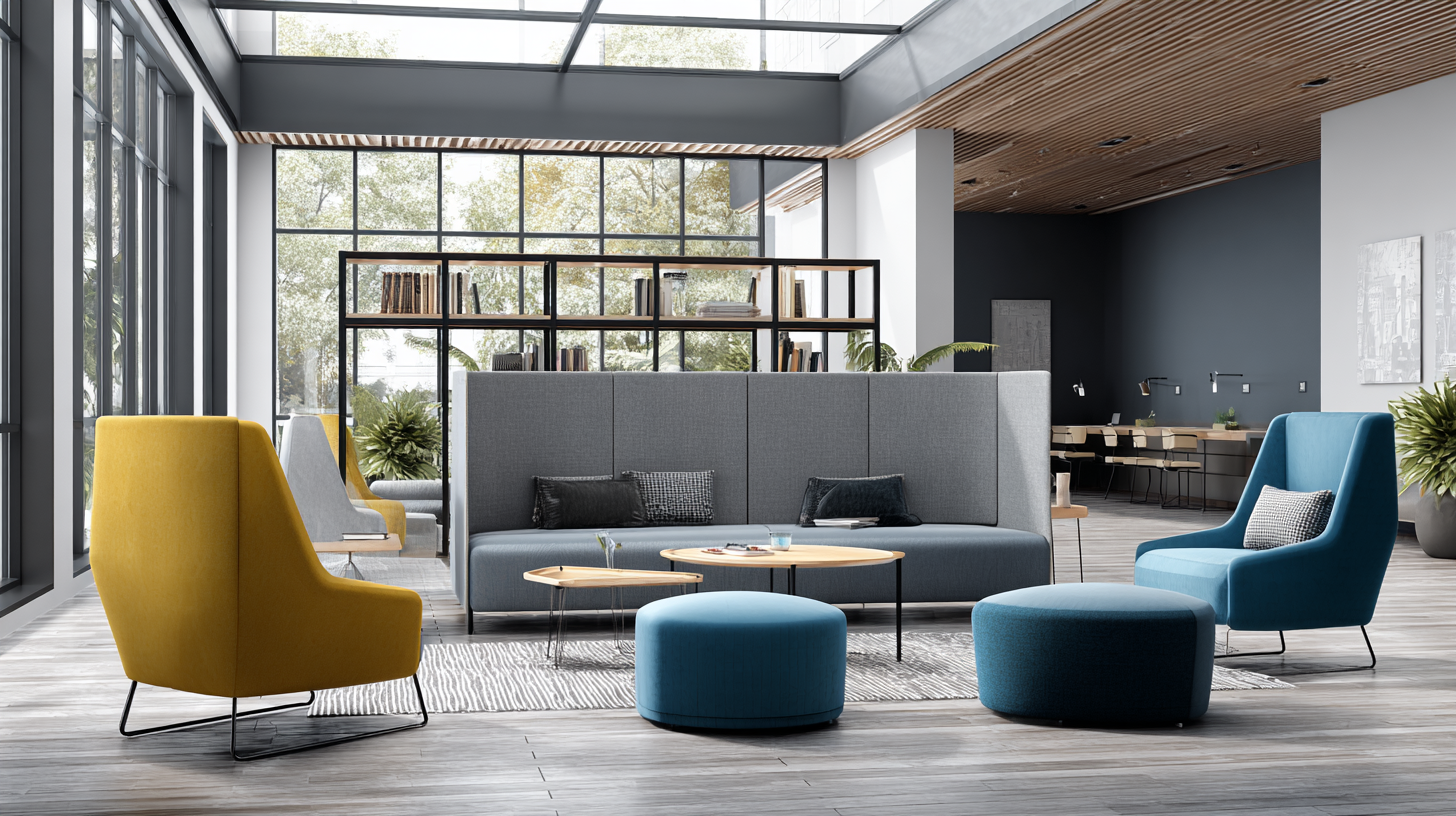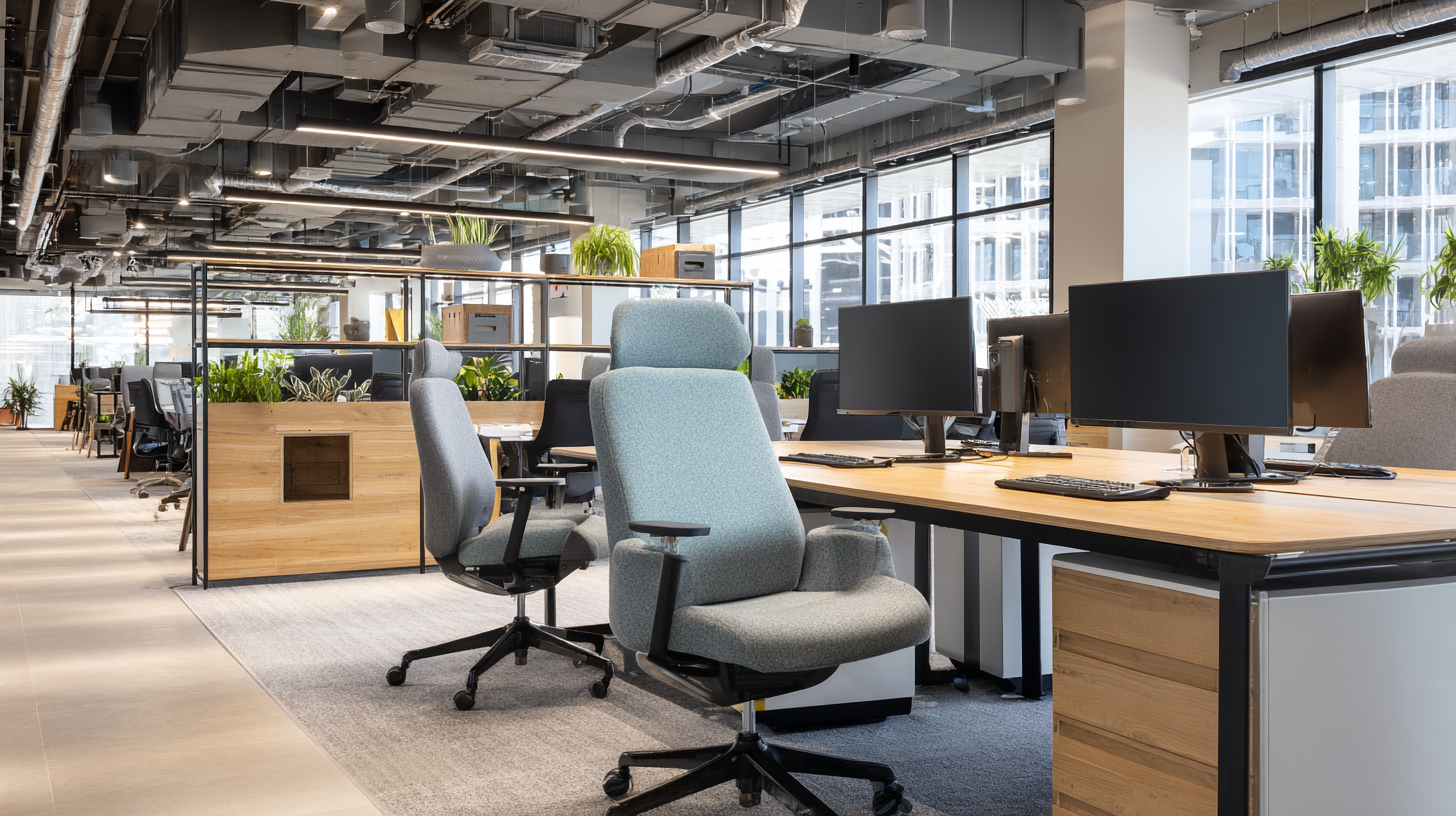Embracing 2025: How Smart Business Furniture Will Transform Workplace Dynamics and Productivity
As we look towards 2025, the evolution of business furniture is set to redefine workplace dynamics and significantly enhance productivity. According to a recent report by Global Industry Analysts, the global office furniture market is projected to reach $78.7 billion by 2024, driven by a growing emphasis on innovative design and functionality. This transformation is not just about aesthetics; data from the International Facility Management Association indicates that well-designed business furniture can increase employee productivity by up to 20%. With the rise of remote and flexible work arrangements, the demand for adaptable and ergonomic furniture solutions is at an all-time high. Thus, embracing these advancements in business furniture is essential for organizations aiming to create more dynamic and efficient work environments.

The trend towards “Made in China” products ensures that companies can access high-quality and competitively priced solutions that meet these evolving needs, further setting the stage for a revolutionary shift in how we perceive and utilize our workspace.
Incorporating Smart Furniture: A Step-by-Step Guide for Offices
In the rapidly evolving workspace landscape, incorporating smart furniture into your office can significantly enhance productivity and employee well-being. Begin with a thorough assessment of your current office layout and employee needs. Identifying pain points, such as lack of collaboration spaces or inadequate ergonomic options, will guide your smart furniture selection. Consider integrating modular desks that promote agility and flexibility, allowing teams to adapt their environments based on shifting project requirements.
Next, prioritize technology integration. Investing in furniture equipped with charging stations, wireless connectivity, and built-in screens fosters a seamless working experience. This encourages employees to leverage technology effectively, reducing downtime and enhancing workflow. Finally, implement a phased approach to introduction, allowing employees to acclimate to their new surroundings. Provide training on the smart features available, ensuring everyone feels confident in utilizing these innovations to their full potential.
Key Features of Smart Business Furniture to Enhance Productivity
As we stride towards 2025, the integration of smart business furniture is poised to revolutionize workplace dynamics and enhance productivity. According to a recent study by Future Workplace, 68% of employees reported that they would be more productive in a smart office environment that adapts to their needs. Smart desks and chairs equipped with sensors can monitor posture and encourage movement, addressing the growing concern of sedentary lifestyles in the workplace.
Moreover, the incorporation of technology that facilitates seamless collaboration is crucial. A report from the International Association of Office Designers indicates that businesses utilizing smart furniture equipped with integrated technology saw a 20% increase in team collaboration and communication. Features such as built-in charging ports and smart whiteboards allow for a more fluid exchange of ideas, fostering creativity and efficiency. Organizations that prioritize these advancements not only improve employee satisfaction but also position themselves for sustainable growth in an increasingly competitive market.
Embracing 2025: Smart Business Furniture Impact on Productivity
This chart illustrates the potential impact of various features of smart business furniture on workplace productivity by 2025. Each feature demonstrates how it can enhance employee efficiency and overall company output.
Assessing Workplace Needs: How to Choose the Right Smart Furniture
As we move toward 2025, the significance of selecting the right smart business furniture becomes increasingly evident. The design of workplace environments directly affects employees' quality of life, promoting both well-being and productivity. Furniture that adapts to individual needs—be it through ergonomic designs, integrated technology, or adjustable features—can foster an atmosphere conducive to creativity and efficiency. Companies looking to enhance their workspaces should assess the specific needs of their employees, ensuring that furniture choices align with those requirements.

Smart furniture goes beyond mere aesthetics; it serves as a tool to empower employees. For individuals with disabilities or mobility challenges, innovative furniture solutions can provide the necessary support to enable greater independence and facilitate collaboration. The future workplace will prioritize accessibility and inclusivity, incorporating features that enhance user experience while addressing environmental factors such as air quality and overall comfort. Selecting the right smart furniture is not only about enhancing workplace dynamics but also about creating a nurturing environment that values employee well-being.
Integrating Technology with Design for a Modern Workspace
In the modern workspace, the integration of technology with design is crucial for enhancing productivity and employee well-being. Today’s offices are transitioning from static environments to dynamic spaces that foster collaboration and creativity. Smart furniture equipped with digital capabilities allows for a seamless blend of functionality and style, ensuring that workspaces adapt to the ever-evolving needs of organizations. This evolution doesn't just benefit individual workers; it creates environments that support team interactions, driving overall productivity.
Moreover, the rise of digital technologies necessitates that workplace designers consider elements like acoustics, ergonomics, and natural light. Proper attention to these aspects can mitigate the challenges posed by digital work environments, such as distractions and fatigue. As companies begin to prioritize employee well-being in their design strategies, they are embracing solutions that promote comfort and innovation. By incorporating smart technology into both the design and operational functionality of office spaces, organizations lay the groundwork for a future where productivity and employee satisfaction coexist harmoniously.

Measuring the Impact of Smart Furniture on Employee Well-being and Performance
The rise of smart business furniture is reshaping the workplace, significantly impacting employee well-being and performance. These innovative pieces of furniture are designed with advanced technology, enabling a more adaptable and supportive work environment. For instance, smart desks that adjust to the user’s height promote better posture and reduce the risk of musculoskeletal issues. By providing ergonomic solutions, businesses can help alleviate physical strain, which is crucial for maintaining focus and productivity throughout the workday.
Moreover, smart furniture goes beyond mere physical adjustments; it also leverages data to enhance the overall work experience. Integrated sensors can monitor how employees interact with their settings, providing insights into preferred arrangements and optimal working conditions. This data-driven approach allows companies to create personalized workspaces that align with individual employee needs, fostering a sense of ownership and satisfaction. As organizations embrace these technologies, they not only invest in the health of their employees but also pave the way for enhanced collaboration and creativity within teams. The integration of smart furniture in the workplace ultimately creates an environment where employees feel valued and empowered, driving both performance and well-being.
Embracing 2025: How Smart Business Furniture Will Transform Workplace Dynamics and Productivity
| Dimension | Metric | Impact (%) | Comments |
|---|---|---|---|
| Employee Comfort | Improved Seat Ergonomics | 25% | Leads to fewer complaints and less absenteeism. |
| Collaboration | Flexible Workspaces | 30% | Encourages teamwork and idea sharing. |
| Productivity | Integrated Technology | 20% | Reduces time spent on logistical tasks. |
| Employee Engagement | Smart Furniture Features | 35% | Increases satisfaction and morale. |
| Health and Well-being | Air Quality Monitors | 15% | Leads to improved focus and overall health. |
